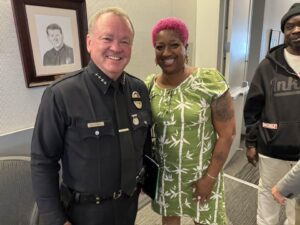
L.A.P.D. Chief Jim McDonnell with the Rev. Najuma Smith and Umar Hakim-Dey (far right). Photos: Bishop John Harvey Taylor
Brie Loskota, a leading expert on faith in the public square, put it bluntly to Los Angeles chief of police Jim McDonnell. “The trust you’ve earned in drops,” she said, “could be lost in buckets.” She and I were among a dozen faith leaders who spent 90 minutes with the chief Monday afternoon in his downtown Los Angeles office. City human rights official Joumana Silyan-Saba had arranged the time for us.
Few doubted the chief’s best intentions. Though in office for just eight months, his career began with 29 years with the LAPD. He cares for his officers and his city. He listened carefully to each of us and responded substantively. He stressed that his officers continue to follow longstanding practice of doing nothing to assist in federal immigration enforcement. When they’re on the scene, he said, often because terrified neighbors have identified Trump’s masked men as kidnappers, their job is to stand in the middle and protect people — immigrants, federal agents, and demonstrators. He said 52 officers were injured in June’s demonstrations, some with permanent damage such as hearing loss and concussions.
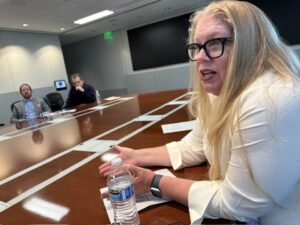
Brie Loskota, a researcher with the Center for the Study of Religion and Society at the University of Notre Dame, addresses Chief McDonnell.
Yet Brie brought first-hand witness. She was among a group of demonstrators in early June, on the first night of Mayor Karen Bass’s curfew. As officers enforced a dispersal order she and those with her hadn’t heard, she said it appeared the cops kettled her and her friends, as if trying to make it impossible to leave the area. Pastor Carlos Rincon of the Centro de Vida Victoriosa and Umar Hakim-Dey of the INKERIJ Foundation also said that in their observation, officers sometimes step over the line. “On the streets,” Umar said, with reference to McDonnell’s reassuring words, “it’s a whole different experience.”
I asked the chief if he or the mayor had gotten advance word of the militarized Border Patrol invasion of MacArthur Park on Monday morning. “No,” he said firmly. He said police had heard rumors for 20 days that the feds were planning something in the park. He stressed that they rode in on assault vehicles and blocked surrounding streets. He said he wasn’t aware of any arrests. “It seemed odd to me,” he said. Press accounts suggest they left when the mayor told them to. Trump’s men said that they can do it to Los Angeles whenever they want, and they’ll be back.
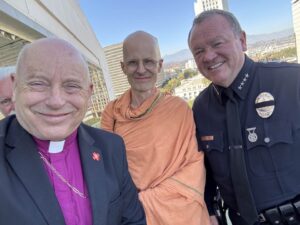
Bishop Taylor with the Vedanta Society’s Swami Mahayogananda (center), president of the Interreligious Council of Southern California, and Chief McDonnell.
Trump’s invasion terrified children attending a day camp in the park. Pastor and USC official Najuma Smith asked why the LAPD couldn’t warn the public. Our St. Paul’s Commons, Echo Park neighbor Rabbi Susan Goldberg of Nefesh did her best to nudge the chief toward adopting a posture of the police as the public’s partner in resisting a hostile federal government. McDonnell offered no explicit criticism of the feds and said the police can’t be political. But he said that U.S. personnel were using tactics the LAPD wouldn’t and that Trump’s anti-immigrant campaign (my phrase, not the chief’s) was creating unprecedented, unpredictable conditions.
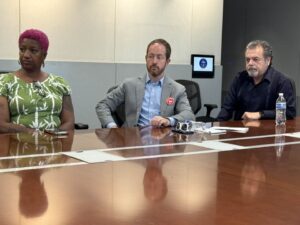
The Rev. Najuma Smith, pastor of L.A.’s Word of Encouragement Church; the Rev. Zach Hoover, executive director of L.A. Voice; and the Rev. Carlos Rincon, pastor of L.A.’s Centro de Vida Victoriosa Church.
After the meeting, McDonnell led us from the conference room through his office to a patio with a beautiful view of the city skyline. In his Bosch novels, former Los Angeles Times reporter Michael Connelly associates the chief’s office on the 10th floor of Parker Center with “high jingo,” shorthand for politics and hidden influence. On Monday, all we experienced was the openness of the chief and his diverse staff — uniform, plainclothes, and civilian. They interacted freely with us and answered all our questions.
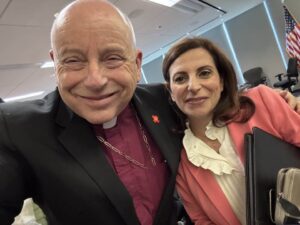
Joumana Silyan-Saba, city of Los Angeles director of civic participation and human rights, joins Bishop Taylor for a selfie photo.
After photos and more conversation, L.A. Voice’s Zachary Hoover asked Swami Mahayoganada of the Vendata Society of Southern California to say a prayer. It was a prayer for peace, just beautiful, and the chief stood comfortably in our circle. I can’t say what he thinks. I just know what I think, which is that Trump and his men, with their urban assault vehicles arrayed against landscapers, nannies, table servers, and day campers, would find more violence in the streets of LA to be politically advantageous. “We just have to avoid a long, hot summer,” I said, shaking his hand as we left. “I know,” he said.
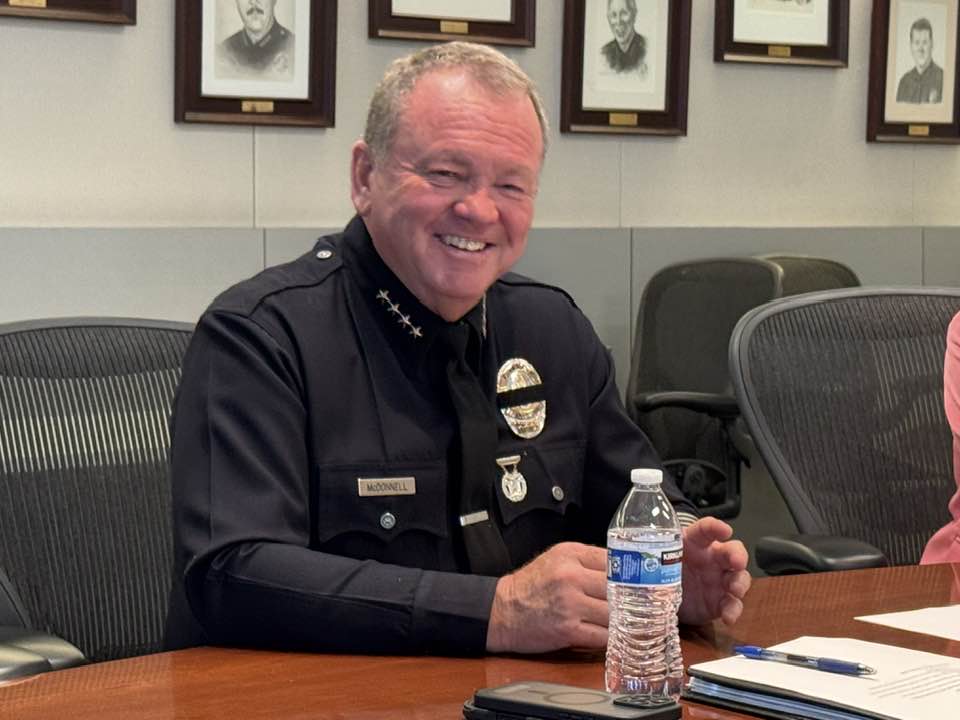
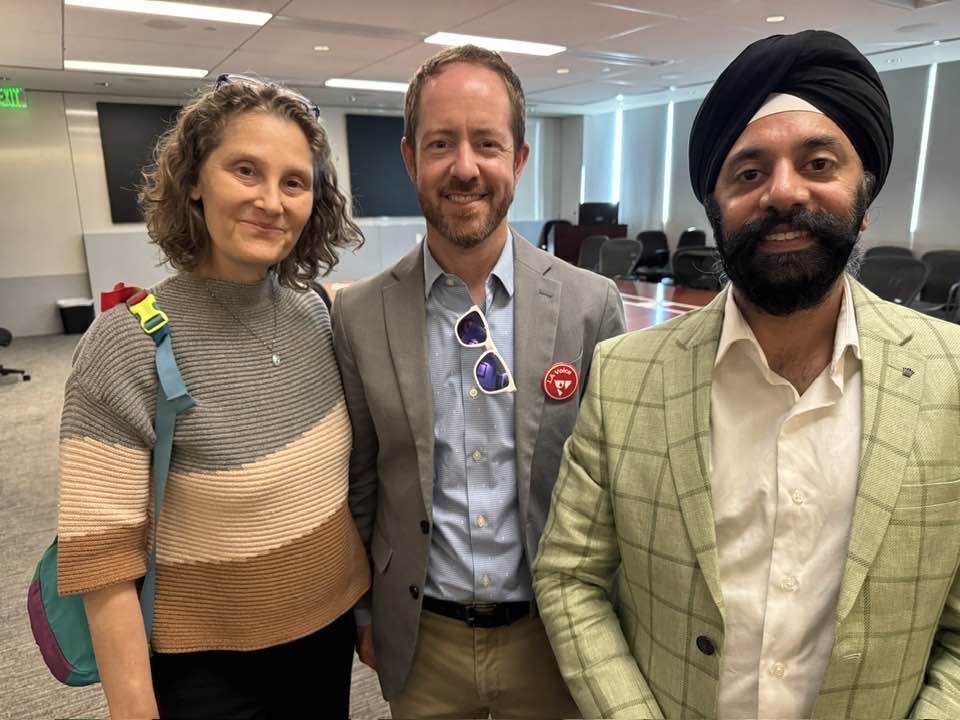
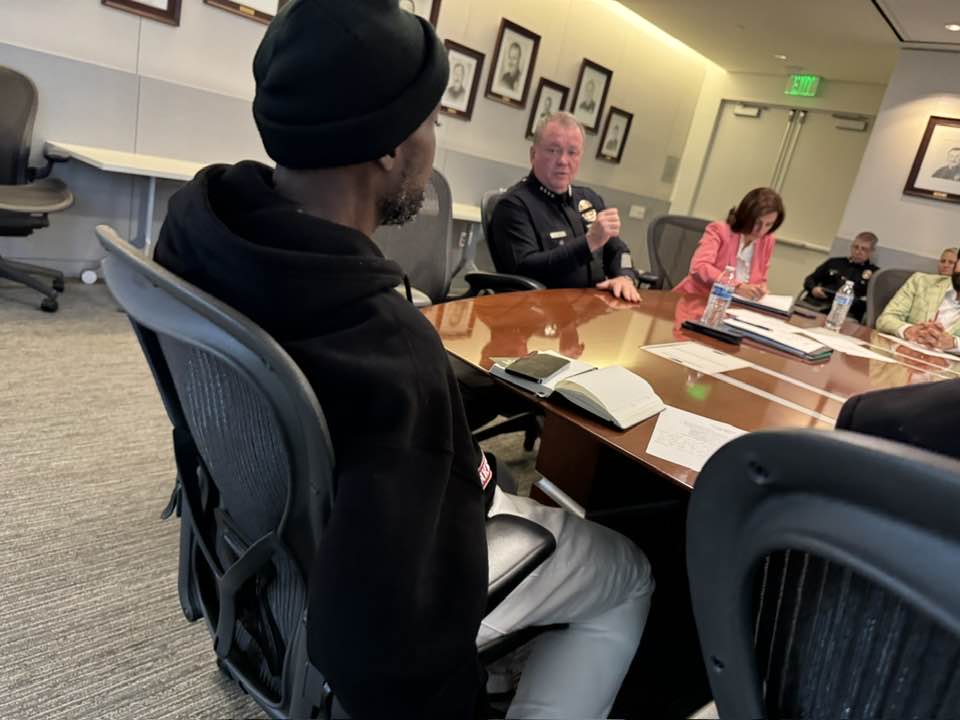
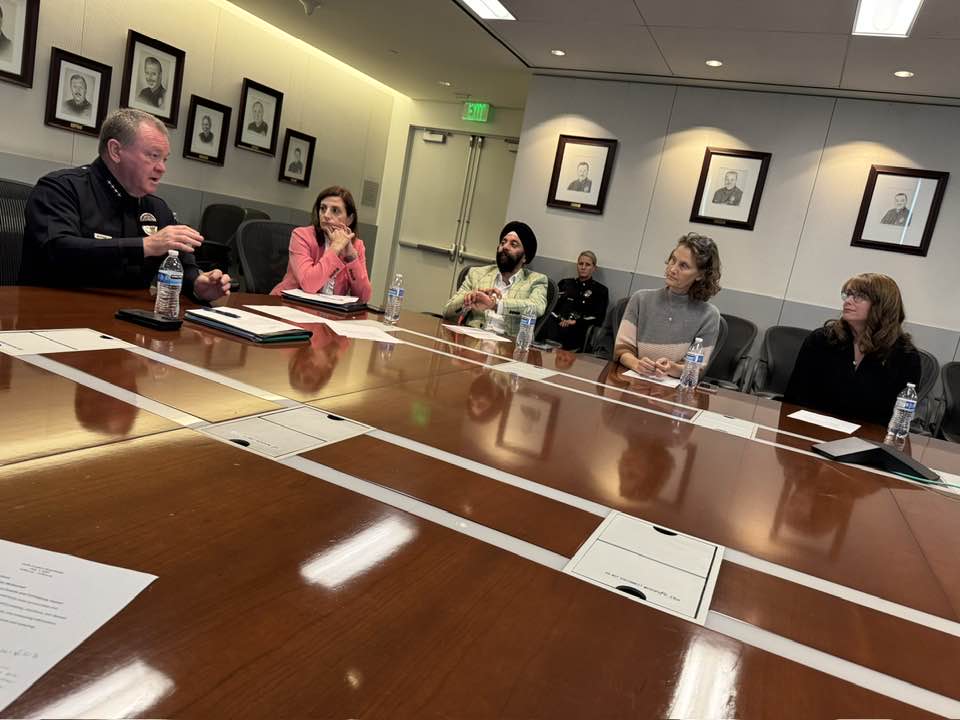
Clockwise from top left: LAPD Police Chief Jim McDonnell; McDonnell meeting with faith leaders; Rabbi Susan Goldberg (left) of Echo Park’s Nefesh synagogue, pictured with the Rev. Zach Hoover (center), executive director of L.A. Voice, and Duncan Sachdeva (right), director of public affairs and community engagement for Hollywood Sikh Temple; McDonnell addresses the leaders in the meeting.
